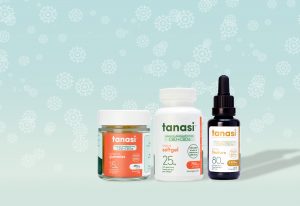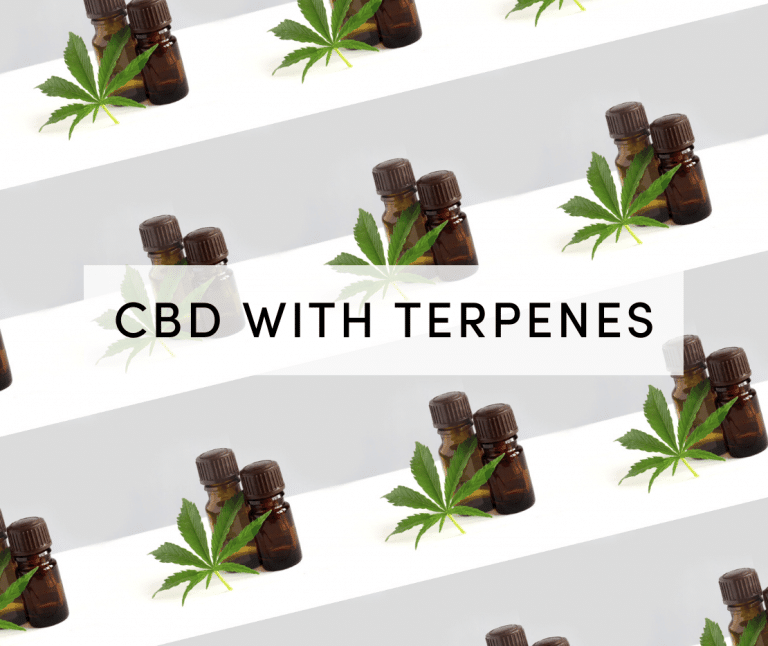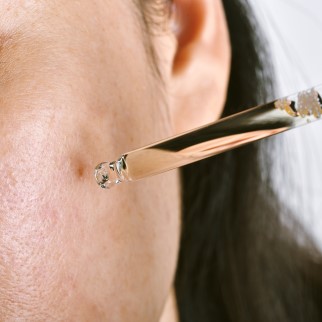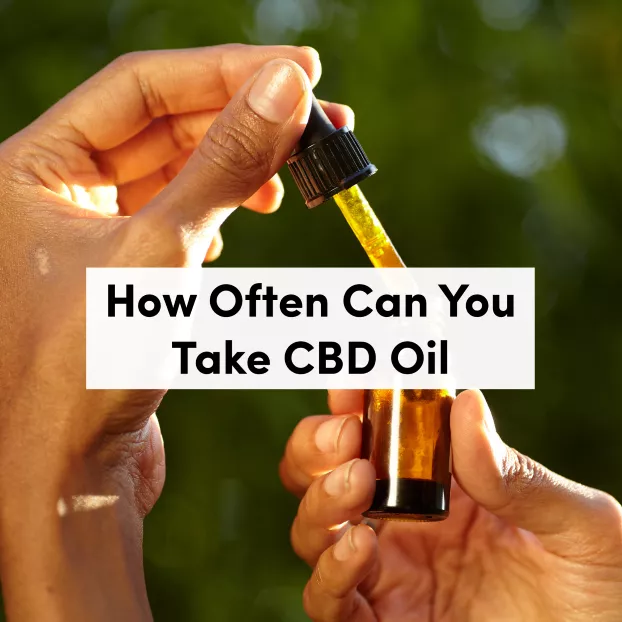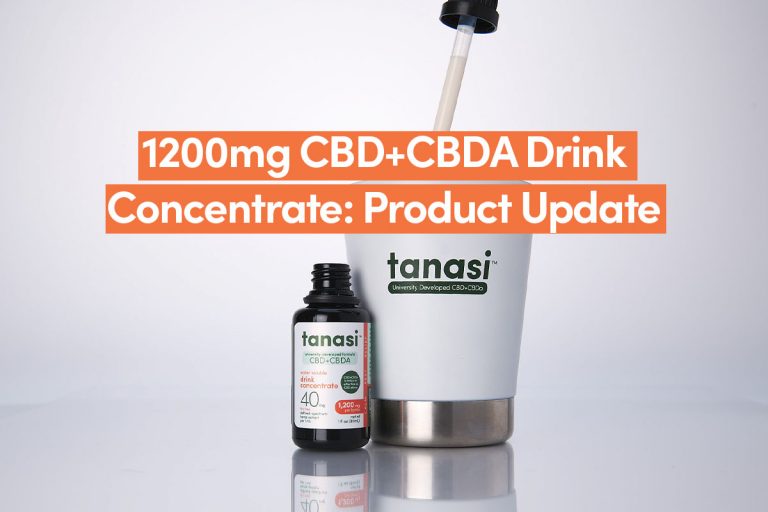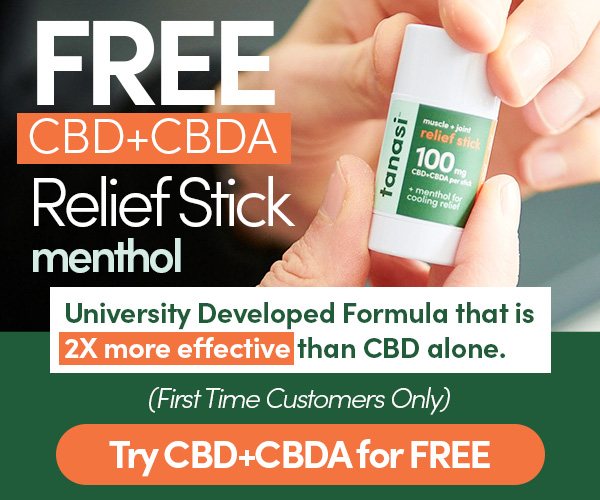Differences Between CBD and CBDa That Make Them Unique
Posted on May 26th, 2023
Humans have used cannabis for millennia as a food, for its fibers, and for many other purposes. It is only within the past few decades, however, that humanity has really started to understand its chemical makeup. Research from the 1970s revealed the presence of different compounds in the cannabis plant called cannabinoids. About 113 are considered to have effects on the brain and body. Still, there’s limited research into each of the cannabinoids and their specific properties. THC and CBD are perhaps two of the most researched cannabinoids. THC, as you might know, is responsible for the ‘high’ that marijuana causes. CBD, on the other hand, has gained a lot of popularity as a federally legal supplement. But what about CBDa, the lesser-known cannabinoid? How is it related to CBD? What are the differences between CBD and CBDa? And why do we include both compounds in a patent-pending, 1:1 formulation in all our Tanasi hemp extracts? Keep reading to find out.
 Differences Between CBD and CBDa
Differences Between CBD and CBDa
First, let’s look at what these two cannabis compounds are. Then we can better explore the differences between CBD and CBDa.
What is CBDa?
Cannabidiolic acid (CBDa) is a compound that occurs naturally in abundance in growing hemp and cannabis plants. It is the acid form of CBD or the unheated or “raw” form of CBD. When CBDa is heated up, it turns into CBD.
What is CBD?
Cannabidiol (CBD) is also a naturally occurring compound in hemp and cannabis plants. It, however, occurs in very small quantities in living cannabis plants. Instead, CBD comes into existence only once you process and heat the dried plant. CBD is activated when the cannabis plant is exposed to heat in a process known as decarboxylation.
CBD gets a lot of attention, but CBDa is probably unknown to a lot of people. If you are like most people, you most likely have questions regarding this compound. CBD and CBDa don’t have intoxicating effects on the brain, which means that they won’t get high the way THC can. While they share some similarities, there are some differences you should know about.
Top 5 Differences Between CBD and CBDa 
-
Formation
One of the differences between CBD and CBDa is when each compound appears in the cannabis plant. Cannabinoids present in the cannabis plant are not always there simultaneously. Some undergo several processes before they become the final cannabinoids.
Acids are formed first. Cannabigerolic acid (CBGA) comes first and all other cannabinoids stem from it. The CBGA is subsequently converted into other acids. These include Cannabidiolic acid (CBDa), Tetrahydrocannabinolic acid (THCa) and Cannabichromenic acid (CBCa). Enzymes that are unique to every cannabis plant cause the conversions.
That’s where the difference between CBD and CBDa arises. CBDa occurs naturally in the cannabis plant. Enzymes in the plant convert CBGA to CBDa and other acids. On the other hand, CBD does not really appear naturally in the cannabis plant. Instead, it is formed after the CBDa is exposed to heat in a process known as decarboxylation.
Decarboxylation is a chemical process that removes a carboxyl group. It happens once CBDa is heated to a temperature of about 270°F. The process converts the ‘inactive’ CBDa into cannabidiol to produce its benefits. Decarboxylation can also occur if you smoke the cannabis or hemp. Extreme heat from the sun can also cause some decarboxylation in growing plants.
-
Consumption Method
CBDa exists in raw cannabis leaves and flowers, which is why juicing raw cannabis is the best consumption method. It can be bitter, which is why it might be necessary to add sugar or a different kind of sweetener.
CBD only occurs after decarboxylation, which means that the cannabis has to be first exposed to heat to access the healing properties of CBD. The most popular ways to consume CBD include in tinctures, lotions, oils, capsules, and gummies. Or, you can enjoy CBD and CBDa in our unique 1:1 formulation in any one of our full spectrum or broad spectrum hemp extract supplements.
-
Potential Uses
Both CBD and CBDa are becoming popular supplements because many people want the effects of cannabis without the “high”. Our research shows that using CBD and CBDa together magnifies these effects by a factor greater than 2X.
-
Availability
Unlike CBD, it is hard to find CBDa products. Due to CBD’s popularity, it is much more prevalent in any cannabis market. Most hemp in the USA is primarily for CBD production. On the other hand, CBDa is rather rare. And that’s yet one more reason why people love our CBD and CBDa products: for a reasonable price, you can access both compounds in one single supplement.
The demand is high for both medical cannabis and recreational cannabis in the states where it is legal. Therefore, farmers generally don’t target the CBDa market. Simply put, most farmers don’t bother to grow cannabis for CBDa harvesting.
Raw uncured cannabis that is rich in CBDa can be difficult to find. Even in areas where marijuana is legal, it is sometimes still not possible to find it in local dispensaries. If you do come across raw cannabis flowers or leaves, you can store them in the refrigerator just as you would any other leafy green vegetable.
5. Working Mechanisms
To wrap up the differences between CBD and CBDa, it is important to look at how they both work. CBD and CBDa both produce effects in the body because they are bioactive. However, they do work differently in the body. And that’s one key to why they work so much better together than on their own.
Conclusion: Differences Between CBD and CBDa
Now that you know about the differences that exist between CBD and CBDa, you may wonder which one is better. The truth is that both of them provide their own unique, which is why it can be hard to choose one over the other. Ideally, you should strive to take them both to enjoy the numerous effects they provide in tandem.
Do you want to enjoy both CBD and CBDa? Well you can do that by choosing full or broad spectrum CBD + CBDa products like Tanasi’s. They have ensured that you don’t have to choose between a product containing either CBD or CBDa. Tanasi sells full spectrum hemp oil that contains both CBD and CBDa, along with many other cannabinoids. This means you only need one well-crafted product to achieve the maximum effects of the hemp plant.

